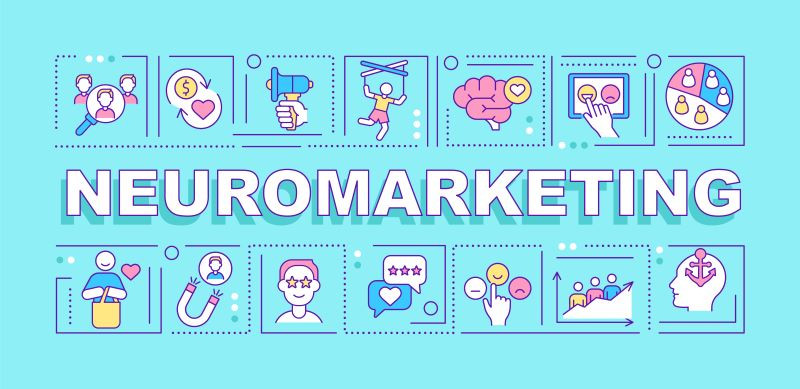Neuromarketing: This Is How Ads Hack Your Brain

©️ ro9drigo / Freepik
How many of you have heard of neuromarketing? What do you think it refers to?
Neuromarketing is a rapidly growing field that combines neuroscience and marketing to understand consumer behavior at a deeper level. By studying brain activity, physiological responses, and eye movements, marketers can gain invaluable insights into what truly drives consumer decisions.
Neuromarketing: Mind-Reading Marketing?
According to 360iResearch neuromarketing is valuable because it provides objective insights into subconscious consumer reactions, avoiding biases in traditional methods. It is used in advertising, product design, branding, and website optimization.
The market is growing due to technological advances, increased marketing investments, and the need for better consumer understanding. However, high costs, privacy concerns, and complex data interpretation are challenges. Opportunities include using these technologies in emerging markets, integrating neuromarketing with AI for predictive analytics, and expanding its use in healthcare.

Moreover, as the neuromarketing solution market is projected to reach $3.24 billion by 2030, growing at a CAGR of 10.82%, its economic impact is undeniable.
How Does Neuromarketing Hack Your Brain?
Neuromarketing employs various techniques to measure consumer responses, including:
- Electroencephalography (EEG): Measures brain electrical activity to understand emotional responses, attention, and memory related to marketing stimuli.
- Functional Magnetic Resonance Imaging (fMRI): Provides detailed images of brain activity to identify specific areas involved in decision-making and product evaluation.
- Eye Tracking: Tracks eye movements to determine where consumers focus their attention on advertisements, product packaging, and websites.
- Biometric Measurements: Monitors physiological responses like heart rate, skin conductance, and respiration to assess emotional arousal and engagement.
The Benefits of Neuromarketing
By understanding the subconscious motivations and preferences of consumers, neuromarketing offers several advantages:
- Enhanced Product Development: Creating products that resonate with consumers on an emotional level.
- Improved Advertising Effectiveness: Crafting compelling ad campaigns that capture attention and drive desired actions.
- Optimized Pricing Strategies: Determining the optimal price points that maximize consumer satisfaction and revenue.
- Enhanced Brand Experience: Designing brand experiences that create lasting emotional connections.

Regional Insights
360iResearch researched how different countries are using neuromarketing and this is what they found:
- United States: Leads in neuromarketing due to advanced technology and high research investment. Emphasizes personalized marketing strategies.
- Canada: Focuses on data-driven insights and transparency in data use.
- Europe: Countries like Germany, France, and the UK prioritize ethical marketing practices under strict privacy laws.
- Middle East and Africa: Countries like the UAE and South Africa are adopting neuromarketing to enhance retail and advertising.
- Asia-Pacific: China, Japan, and India are growing fast due to high digital adoption. China focuses on digital engagement, Japan on enhancing consumer experiences, and India on understanding diverse consumer preferences.
What Does the Future Hold?
As technology advances, neuromarketing is poised to become an even more powerful tool for marketers. Emerging trends include:
- Integration With Artificial Intelligence: Combining data with AI to create personalized marketing experiences.
- Ethical Considerations: Developing guidelines for the ethical use of it to protect consumer privacy and well-being.
- Expansion Into New Industries: Applying neuromarketing principles to sectors beyond consumer goods, such as healthcare and finance.
Neuromarketing is revolutionizing the way businesses understand and connect with consumers. By tapping into the subconscious mind, marketers can create more effective and impactful campaigns that drive long-term success.
But, there is more to it…

The Dark Side of Neuromarketing
The potential for misuse of neuromarketing is equally significant. As highlighted in the text, “Neuromarketing and AI: Frontier of Behavioral Manipulation,” the combination of neuromarketing with AI can lead to:
- Increased consumer manipulation: The ability to precisely target and influence consumer behavior raises ethical questions about autonomy and free choice.
- Privacy concerns: The collection and analysis of brain data involve sensitive personal information, necessitating robust data protection measures.
- Potential for discriminatory practices: If neuromarketing data is used to create targeted campaigns that exploit vulnerabilities, it could exacerbate social inequalities.
How do you feel about this? Do you feel like this may invade your privacy? Tell us in the comments.
You may also like: Scientists Create Mind-Reading Helmet: It Translates Brain Waves!


